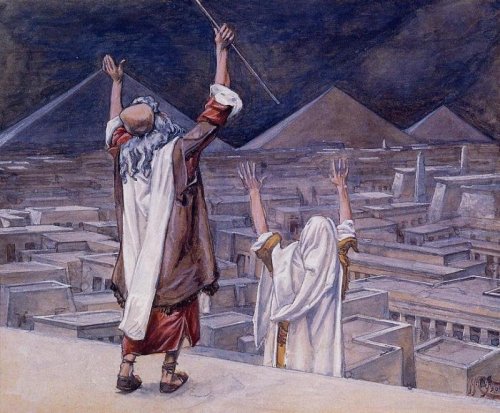
James Tissot (1836-1902). The artist's impression of Trent Bridge groundstaff as Wilton-Godberford unleashes his wrath.
It is a great injustice of our times that David Wilton-Godberford is not a household name. In another dimension, a better time and place, there are books written about him, songs sung about him, documentaries voiced by Stephen Fry and featuring whimsical recollections from Stuart Maconie broadcast about him.
For Wilton-Godberford is the greatest folk hero we never had; the architect of perhaps the wittiest, most outrageous protest action ever devised in the United Kingdom.
It was May, 1970 and the South Africa cricket team were due to arrive within weeks. The Springboks represented the ultimate test in world cricket. They had just whitewashed Australia 4-0 and, five years before the inaugural World Cup, were the unofficial champions of the world.
Unfortunate term, though, ‘whitewashed’ because the ‘Boks were, to a man, all white. Not by chance or even bias but by law. South Africa was the land of apartheid, of official and institutional white supremacy. The cricket world could hardly forget. It had been the celebrated D’Oliveira affair that had brought apartheid to the public’s attention in 1968. And for two years the world had waited and watched English cricket.
Would they (could they?) welcome the whites-only Springboks for an official Test series as if nothing had happened? The establishment seemed to think so but the anti-apartheid movement had other ideas. For a year the Stop the Seventy Tour group had disrupted visiting Springbok teams by invading tennis courts and rugby pitches, hijacking team coaches and gluing hotel doors shut.
They had similar plans for the cricketers but Wilton-Godberford threatened to take it to a new level. Times cricket correspondent John Woodcock filed a story from North Wales reporting that Wilton-Godberford, a London University student, intended to make a “personal protest”.
And this was something altogether different to linking arms and working through the playlist of Song to a Seagull, or handcuffing himself to the Twickenham posts. Wilton-Godberford was a biology scholar, but obviously not adverse to allying his Darwin with reading of an older vintage where the occasion called for it. As Woodcock reported, he had threatened to unleash 500,000 locusts on the playing fields of England if the tour were to proceed.
Now whatever you think about direct action protesting, you have to admit that this is a bold gambit: ambitious, media friendly and, perhaps above all, practicable. If you really want to pull off that Old Testament ‘wow factor’ on limited resources then locusts are the way to go. Turning rivers to blood is a big ask, hail mixed with fire attracts public disapproval, and deaths of the first born sons would deprive future generations of Shaun Pollock.
DWG himself was quoted thus: “They will ravage every blade of grass and green foliage. The greatest care will be taken to ensure that they are in the correct physiological stage. So that their insatiable appetites will not be impaired they will not be fed for 24 hours before the moment of truth. The crack of a solid army of locusts feeding on the grass will sound like flames.”
Or, to put it another way: “There had never been so many locusts, nor would there be so many again. For they covered the surface of the whole land, so that the land was darkened; and they ate every plant of the land and all the fruit of the trees that the hail had left. Thus nothing green was left on tree or plant of the field through all the land of Egypt.”
Wilton-Godberford never had to make good on his threat. The tour was cancelled and South Africa quickly exiled from international sport. The 1970 Springboks were disbanded and they watched the 1975 World Cup from their living rooms.
By that time the whites-only Springbok policy had been thrown out with teams picked on a ‘multi-racial’ basis. But it was too late. The Springboks would not be allowed to return to international cricket until apartheid itself was dismantled. It would be another 12 years before the Springbok emblem was worn on the cricket field – and only then in sparking a new and vociferous controversy that rocked cricket and the world far beyond.
- A version of this article was first published by Cricket365.com on 24 June, 2008. ‘Plan to disrupt cricket tour with locusts’ by John Woodcock appeared in The Times on 11 May, 1970. The tour was cancelled 11 days later, a week before Ali Bacher’s side was due to arrive.